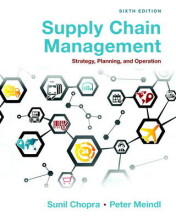Summary: Eu's Political Institutions Hs 3 ( Week 1)
- This + 400k other summaries
- A unique study and practice tool
- Never study anything twice again
- Get the grades you hope for
- 100% sure, 100% understanding
Read the summary and the most important questions on EU's political institutions HS 3 ( Week 1)
-
1 Introduction
-
What is one of Winston Churchill's famous sayings?
It has been said thatdemocracy is one of theworst forms of government, except all the others that have been tried. -
What is the main interaction in EU law in regards of democratic legitimacy?
Input legitimacy - public acceptance of EU Law
output legitimacy - -
What is a key point in regards the commission's transition to majority voting, where before the voting was done unanimously?
The commission's efficiency grew but handed in return the democratic legitimacy. -
2 the concept of representative democracy
-
Name three governmental branches:
- Legislative
- Executive
- Judiciary
( aka de drie machten) -
The executive a.o. usually drafts bills for the parliament to vote on and sets out the policy of the government. What would be an important part the latter?
A Permanent administration, aka bureaucracy or civil service. task of advising the government and applying the law on a daily basis. Request for passports and student loans etc. -
2.1 Representative democracy and the EU
This is a preview. There are 1 more flashcards available for chapter 2.1
Show more cards here -
When comparing EU bodies with the ones from member states. We can carefully make the next comparison
Executive and administration = Commission (with right of initiative)
Legislative Bi cameral = EP and directly elected ( lower house
The Council not directly elected ( upper house)
Some executive power have been conferred to the European council and the council. -
3 Commission
-
3.1 introduction
-
What are the main articles describing the role and tasks of the Commission
17 TEU - main role description
18 TEU - role of the High Representative
244 TFEU - Election members
245 TFEU - Independence members plus Duties members. -
3.2 compostion
-
Name three 'parts' of the commission.
1. The college of Commission
2. The President and the ' High Representative' of the Commission
3. Thousands of staff members of the administration -
3.2.1 Number of members
-
Which treaty put the current composition of the Commission into force?
The treaty of Lisbon (2009 ). There theEU leaders agreed that if the Treaty will beratified , each member state will have one representative in the Commission. It was only formally adopted by 2013 -
3.2.2 The president
This is a preview. There are 1 more flashcards available for chapter 3.2.2
Show more cards here -
What can a President not do in regards to the Commission. And what can it do?
It cannot decline or have any sort of veto on Commission's proposals. It can influence a lot of the Commission. The President's task is to set out the guidelines of the Commission. It can ,if necessary, ensure the resignation of on of the Commissioners.
- Higher grades + faster learning
- Never study anything twice
- 100% sure, 100% understanding
































